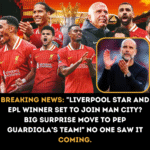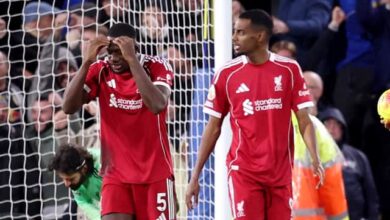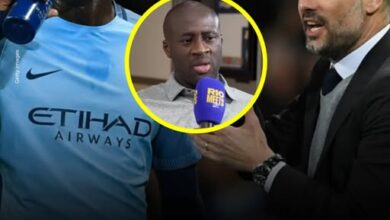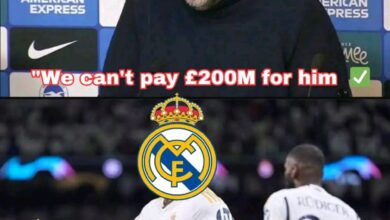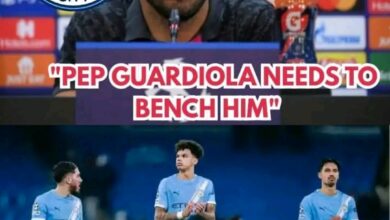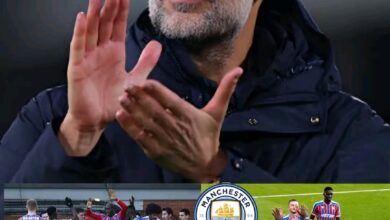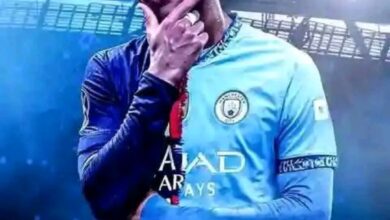Guardiola to take coaching break after Man City

On a mild spring morning in Manchester, as the Premier League season edges toward its conclusion, Pep Guardiola casually dropped a bombshell that reverberated throughout the football community. Speaking to ESPN in an exclusive interview, the 54-year-old Catalan confirmed what many had speculated but few wanted to believe: “After my contract with City, I’m going to stop. I’m sure.”
The statement, delivered with Guardiola’s characteristic blend of certainty and philosophical detachment, marks the beginning of the end of an extraordinary chapter in Manchester City’s history. His current contract, signed in November 2024, keeps him at the Etihad Stadium until June 2027—by which time he would have spent an unprecedented 11 years at the helm of the Sky Blues.
“I don’t know if I’m going to retire,” Guardiola continued, offering a sliver of hope to those who cannot imagine the tactical maestro permanently removed from the dugout. “But I’m going to take a break.”
Later that week, speaking to Sky Sports, Guardiola moved to clarify his statement, perhaps recognizing the seismic impact of his words. “I didn’t say I’m leaving now or at the end of season or the end of contract,” he emphasized. “I said when I finish my time here, be it one, two, three, four, five years, I will take a break. I won’t retire but I will take a break. What I am saying is when I am finished here I will take a break.”
The Guardiola Dynasty at Manchester City
To understand the gravity of Guardiola’s eventual departure is to comprehend the scale of his achievements at Manchester City. Since his arrival in 2016, the club has undergone a metamorphosis from Premier League challengers to one of football’s most dominant forces.
Under Guardiola’s stewardship, City have amassed an astonishing 13 major trophies, including six Premier League titles in nine seasons—a level of domestic dominance unprecedented in the modern era. The jewel in the crown came in the 2022-23 season when City claimed their first UEFA Champions League title as part of a historic Treble, cementing both the club’s and Guardiola’s place in football history.
This season has presented new challenges for Guardiola and his team. Currently sitting fourth in the Premier League with four games remaining, City have not displayed their usual imperious form. Yet, in a testament to the winning culture Guardiola has instilled, they remain in contention for silverware, with an FA Cup final against Crystal Palace looming on May 17th.
A Career Defined by Innovation and Success
Guardiola’s announcement prompts inevitable reflection on a managerial career characterized by tactical innovation, relentless perfectionism, and an unwavering commitment to an aesthetically pleasing style of play.
His coaching journey began at Barcelona, where over four transformative years he created what many consider the greatest club side in football history. The tiki-taka revolution he spearheaded not only delivered 14 trophies but fundamentally altered football’s tactical landscape. His Barcelona team, with Lionel Messi as its centerpiece, redefined positional play and possession-based football, establishing a template that countless teams would attempt to emulate.
After taking a sabbatical—a pattern he now seems set to repeat—Guardiola resurfaced at Bayern Munich in 2013. During three seasons in Bavaria, he continued his trophy-gathering habit, securing three consecutive Bundesliga titles while further refining his footballing philosophy.
Then came Manchester City, where Guardiola has arguably produced his most impressive body of work. After an initial trophyless season—the only one of his managerial career—he set about transforming City into a footballing juggernaut. The statistics tell a compelling story: six Premier League titles, multiple domestic cups, and the coveted Champions League trophy.
The Philosophical Coach
What sets Guardiola apart, beyond his tactical acumen and trophy cabinet, is his philosophical approach to football and life—an ethos reflected in his comments about legacy.
“How I want to be remembered, I don’t know,” he mused in his ESPN interview. “I want people to remember me however they want.”
In these words, we glimpse the paradox at the heart of Guardiola’s character—a man simultaneously driven by an obsessive pursuit of perfection while maintaining a Zen-like detachment from the fruits of his labor.
“All coaches want to win so we can have a memorable job,” he continued, “but I believe that the fans of Barcelona, Bayern Munich and City had fun watching my teams play. I don’t think we should ever live thinking about whether we’re going to be remembered. When we die, our families cry for two or three days and then that’s it—you’re forgotten. In the careers of coaches, there are good and bad ones, the important thing is that the good ones are remembered for longer.”
This philosophical rumination offers insight into Guardiola’s worldview—one that values the aesthetic journey as much as the destination, that understands football’s capacity to generate joy, and that recognizes the ephemeral nature of achievement.
The Toll of Excellence
Guardiola’s decision to take a break after Manchester City raises questions about the sustainability of his intensive approach to management. The Catalan is renowned for his all-consuming commitment to his craft—poring over match footage into the early hours, obsessing over tactical details, and demanding nothing less than absolute dedication from his players.
Former Bayern Munich and Germany goalkeeper Manuel Neuer once observed, “Pep thinks about football 24 hours a day.” This relentless mental engagement exacts a toll, one that Guardiola has previously acknowledged.
During his Barcelona tenure, signs of burnout became evident as Guardiola lost weight and appeared increasingly drained by the pressures of managing at the highest level. His decision to leave the Camp Nou in 2012 was driven partly by exhaustion—”four years is an eternity at Barcelona,” he said at the time.
His sabbatical between Barcelona and Bayern Munich allowed Guardiola to recharge in New York, away from the European football spotlight. The impending break after City would follow a similar pattern, suggesting Guardiola understands his own limits and the necessity of periodic withdrawal from the game’s unrelenting demands.
The City Era in Context
Guardiola’s time at Manchester City will be remembered not only for its success but for its transformative effect on English football. When the Catalan arrived in 2016, the Premier League was characterized by a diverse tactical landscape, with teams employing varying approaches to the game. Under his influence, possession-based football with an emphasis on positional play has become increasingly prevalent.
Beyond tactics, Guardiola’s influence extends to player development. He has elevated numerous careers, turning good players into great ones and great players into icons. Kevin De Bruyne evolved from an excellent midfielder into one of the world’s best under Guardiola’s tutelage. Raheem Sterling transformed from a promising but inconsistent winger into a consistently prolific goal-scorer. Phil Foden developed from academy prospect to world-class talent.
This aspect of Guardiola’s legacy is perhaps less quantifiable than trophies but no less significant. His ability to improve players, to help them understand space and movement in revolutionary ways, represents a form of coaching alchemy that few have mastered.
Looking Beyond 2027
The question that inevitably follows Guardiola’s announcement is: what next? While he has explicitly stated his intention to take a break rather than retire, the football world will speculate about potential future destinations.
National team management has long been rumored as a potential next step. Guardiola has previously expressed interest in coaching at the international level, and his tactical approach could translate effectively to the international game. England, Brazil, and his native Spain would likely be among the federations interested in securing his services.
Alternatively, Guardiola might be drawn to a new club challenge after his hiatus. Having conquered Spain, Germany, and England, Italy represents the only major European league where he has not tested his methods. A club with the prestige and resources of Juventus might appeal.
However, there remains the possibility that Guardiola may extend his City stay beyond 2027. His clarification that he was not definitively leaving at the contract’s conclusion leaves this door ajar. The relationship between Guardiola, City’s ownership, and key executives like Txiki Begiristain remains strong, and the club’s resources allow him to continue building and evolving his team.
The Succession Question
Manchester City now face the daunting prospect of planning for life after Guardiola, even if that transition is still potentially years away. Following a manager of his caliber presents an enormous challenge, as Manchester United discovered after Sir Alex Ferguson’s retirement.
The club’s ownership and executive team will likely already be contemplating succession plans. Names like Xabi Alonso, who has impressed at Bayer Leverkusen, might be considered as potential heirs to Guardiola’s throne. Alternatively, City might look to promote from within, with Guardiola’s assistant Rodolfo Borrell potentially in the frame.
Whomever City eventually choose, they will be tasked not with replicating Guardiola’s methods but with building upon his foundation while establishing their own identity. The post-Guardiola era will inevitably be different, but his influence will remain embedded in the club’s DNA.
The Immediate Future
While football contemplates a landscape without Guardiola in active management, the man himself remains focused on the immediate challenges. This season has seen City struggle to maintain their usual dominance, with Liverpool, Arsenal, and Newcastle United mounting serious challenges.
The FA Cup final against Crystal Palace represents an opportunity to salvage silverware from a campaign that has fallen short of City’s lofty standards. For Guardiola, whose competitive fire burns as intensely as ever, ending the season with a trophy would provide satisfaction and momentum heading into what could be the final two years of his City tenure.
A Legacy Beyond Trophies
As Guardiola contemplates his Manchester City endgame, his legacy extends far beyond the impressive collection of silverware. He has redefined the parameters of what is possible in English football, elevating the technical and tactical standards of the Premier League.
His City teams have produced moments of breathtaking beauty—the 100-point season, the domestic Treble, the Champions League triumph—that will be etched in the memories of fans for generations. Guardiola’s true achievement lies not just in winning but in the manner of that winning: the control, the precision, the artistic expression.
When asked about his legacy, Guardiola’s response revealed a man more concerned with the journey than the destination: “I believe that the fans of Barcelona, Bayern Munich and City had fun watching my teams play.” This sentiment encapsulates Guardiola’s philosophy—football as art, as experience, as joy.
Conclusion: The End of an Era Approaches
Pep Guardiola’s announcement marks the beginning of the end of a remarkable chapter in football history. While his departure from Manchester City is not imminent, the countdown has begun. Two more seasons of Guardiola’s tactical mastery await before his self-imposed sabbatical.
For Manchester City, the challenge will be maximizing these remaining years while preparing for an uncertain future. For football fans worldwide, there is an opportunity to appreciate a coaching genius still operating at the height of his powers, conscious that such brilliance is finite.
Guardiola himself appears characteristically philosophical about this transition. His comments about legacy reveal a man at peace with his achievements, unconcerned with posthumous glory, focused instead on the beauty his teams have created and the joy they have inspired.
When Guardiola eventually walks away from Manchester City, he will leave behind not just a trophy-laden legacy but a philosophical imprint—a vision of football as it could be, should be, might be when shaped by hands as skilled as his. And after the break? Only time will tell whether football’s greatest modern coach will return to add another chapter to his extraordinary story.

